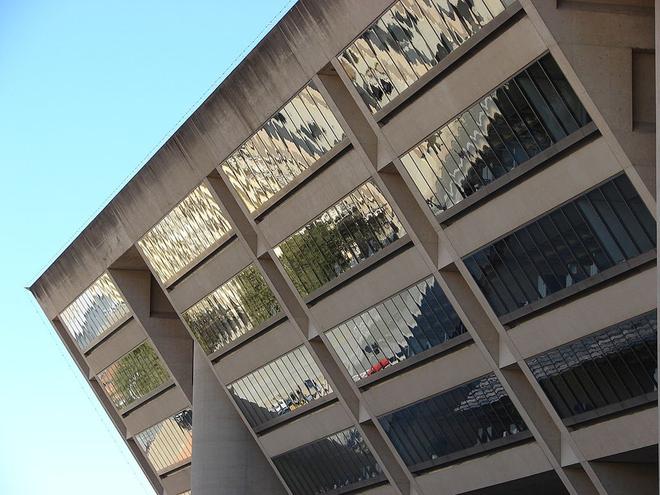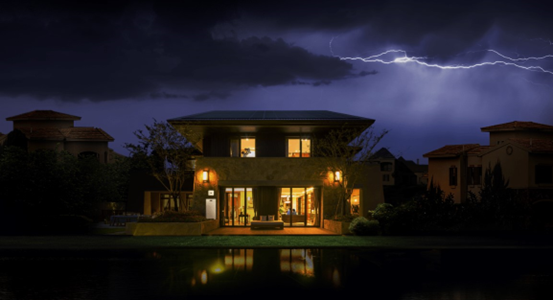It can take months to get a building permit in Dallas, but city officials now say that could be a thing of the past by next year.
Delays in developers getting approval to build and rebuild in Dallas have persisted for at least two years. Issues with tracking permit applications, malfunctioning computer software used to manage the system, trouble navigating the city’s zoning code and staffing shortages have all been part of the problem.
As of last month it took on average roughly four months to get a commercial building permit in the city and 35 days for a residential building permit, city officials said. But estimated approval times were projected to reach as high as 10 to 12 weeks because the city received an influx of applications.
Assistant City Manager Majed Al-Ghafry told the City Council at a Wednesday briefing that the city plans to close the gap throughout the rest of the year by, among other things, hiring more workers and contracting with an outside group to fix permit review, customer service and technology issues, increase training for staff and establish performance measures.
The city will also upgrade ProjectDox, the software system used for submitting and processing permits and better track how long it takes to issue them. Several of the changes will be in place by this summer, Al-Ghafry said.
Other improvements, like installing computer stations for customers in the city’s Oak Cliff-based permit office, might not be finished before the second half of the year. City officials said last month that plans to replace Posse, a software used to manage permitting, inspections and other land management, could take between 18 months and two years.
“We’re looking at a nine-month period where everything is going to be in great order, if not perfect order,” Al-Ghafry told council members.
Dallas Mayor Eric Johnson in February announced a workgroup to come up with ways to streamline the city’s building permitting process amid continued complaints. Wednesday’s update came after council member Paula Blackmon, a workgroup co-chair, sent Broadnax a memo in April requesting he publicly present the council with a strategy explaining how he plans to fix Dallas’ permitting system issues.
City officials told council members last year that issues at the building inspection call center included workers not having headsets, computer monitors and other equipment to properly do their jobs; the division had no training standards; about 70% of customers on average being hold for more than 15 minutes; and around a third of calls not being answered. Customers contact the call center to get answers on questions about building permits and inspections.
The consequences of the delays could be costly. Linda McMahon, CEO of North Texas commercial real estate advocacy group The Real Estate Council, said during a January council committee meeting that her group’s estimates show more than $31 million of tax revenue is lost for every three months of permitting delays, including $9 million in lost revenue for the city of Dallas.
Al-Ghafry and City Manager T.C. Broadnax told council members they believed Dallas’ permitting process and involved workers were getting an unfair reputation.

“Developers are not walking away from the city of Dallas,” Al-Ghafry said. “We have 6,500 permits a year that we’re doing. That’s phenomenal. I need us to really resonate with that and know that people want to come to the city of Dallas and work with the city of Dallas.”
Broadnax dismissed the $9 million lost city revenue estimate Wednesday, saying he didn’t know where the tally came from and said the city’s tax base is growing.
Broadnax said he was frustrated that issues with the permitting office had been amplified by city elected officials, the media and the public to the point that he fields questions about the woes of the permitting office by people who don’t submit applications.
“That’s because that’s what they’re hearing every day,” Broadnax said regarding the city’s perception. He disagreed with any notion that the permitting office was more efficient before the pandemic, when the issues and delays weren’t as pronounced. He referred to that period several times as the “good ol’ bad days” and that while he felt staff worked hard, but there were no performance metrics or accountability when problems arose.
“I guess it’s on me for not being the director or the person sitting in the seat to manage these issues,” said Broadnax, who has been Dallas’ city manager since 2017. “But I’ve got admirable and capable folks today who are doing those kinds of things.”
The mayor pushed back against notions that the city’s permitting office issues were overblown, questioning what motivation people would have to exaggerate the problem.
“We can’t always give A’s for effort around here and at some point we have to be about getting the job done and getting it done efficiently,” Johnson said.
“There’s a danger to morale to not give people enough credit in government for the hard work that they do,” he said. “But there’s also a danger to the taxpayers and the folks that we represent when we don’t sufficiently hold people accountable and ask them to perform at the level that our residents and our business community demand.”
Council member Chad West said small business owners and contractors were most impacted by the city’s permitting problems since they likely aren’t able to afford hiring zoning consultants to help them navigate the system, which includes more than 1,000 planned development districts in the city.
“The city permitting office is our gateway to jobs in the construction industry, to our revenue for the city and the creation and renovation of housing,” West said. “If we are not the most efficient permitting system in the country, then we’re not doing it right.”
Blackmon said Wednesday that the city needs to keep developers and contractors informed amid the permitting software upgrades and to be upfront if there are any troubles in the process.
“We just need to be honest with them,” she said. “People are OK accepting the truth, but we have to give it to them because they create their own narrative when we don’t.”
In Houston and Grand Prairie, it takes up to 10 business days to review and issue residential permits. Fort Worth says it can take up to seven business days to issue residential and commercial building permits.
Broadnax said workers who are part of the city’s permitting process understand the seriousness of the issue and that he’d be happier if he could “just get back to the good ol’ bad days.”









